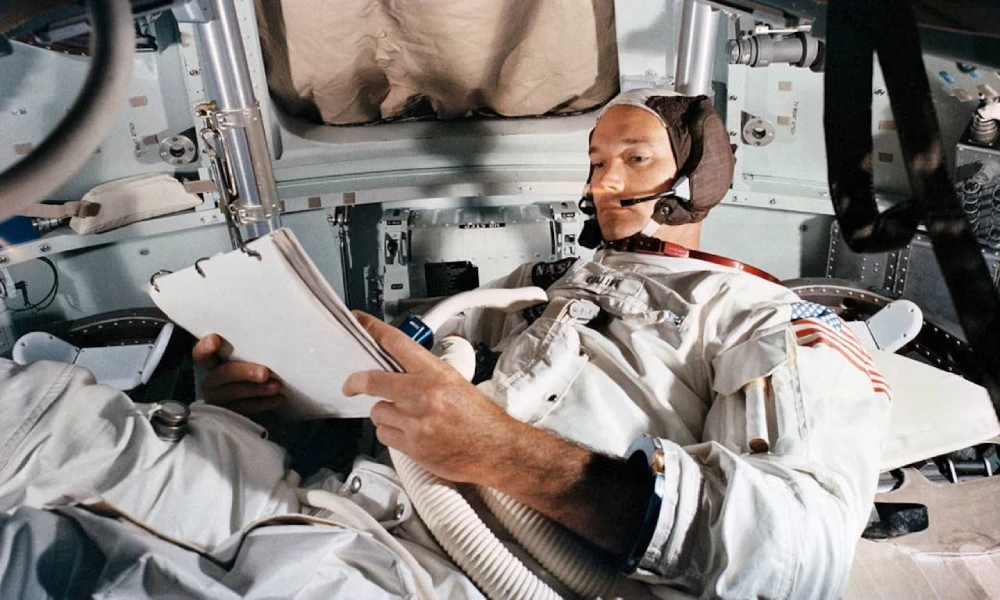Michael Collins, often dubbed “the forgotten astronaut,” played a crucial role in one of humanity’s greatest achievements: the first Moon landing.
Born on October 31, 1930, in Rome, Italy, where his father was stationed as an Army officer, Collins developed a passion for aviation early in life. He graduated from the United States Military Academy at West Point in 1952 and joined the Air Force, where he became a fighter pilot and test pilot.
In 1963, Collins was selected by NASA as part of the third group of astronauts. His first spaceflight came in 1966 aboard Gemini 10, where he performed two spacewalks, becoming the third American to do so.
However, Collins is best known for his role in the historic Apollo 11 mission. On July 16, 1969, he launched to the Moon alongside Neil Armstrong and Buzz Aldrin. While Armstrong and Aldrin descended to the lunar surface, Collins remained alone in the Command Module Columbia, orbiting the Moon 30 times. For 48 minutes of each orbit, when he was on the far side of the Moon, Collins was completely cut off from all communication with Earth, earning him the title of “the loneliest man in history.”
Despite not walking on the Moon himself, Collins’ role was critical to the mission’s success. He was responsible for docking maneuvers that reunited the Lunar Module with the Command Module, ensuring his crewmates’ safe return to Earth.
After leaving NASA in 1970, Collins briefly served as Assistant Secretary of State for Public Affairs. He then became the first director of the National Air and Space Museum, overseeing its construction and opening in 1976.
Collins wrote several books, including his acclaimed memoir “Carrying the Fire,” which is considered one of the finest astronaut autobiographies. He was known for his eloquence and introspection, offering unique perspectives on Earth’s fragility and humanity’s place in the cosmos.
Throughout his life, Collins received numerous honors, including the Presidential Medal of Freedom and the NASA Distinguished Service Medal. He was inducted into the U.S. Astronaut Hall of Fame in 1993.
Despite his crucial role in the Moon landing, Collins remained modest about his achievements. He often emphasized the collaborative nature of the Apollo program, praising the thousands of individuals who worked behind the scenes.
Michael Collins passed away on April 28, 2021, at the age of 90. He left behind a legacy not just as an accomplished astronaut, but as a thoughtful advocate for space exploration and scientific education. His unique experience as the Apollo 11 Command Module pilot provided the world with a different perspective on one of humanity’s greatest adventures, reminding us of the vastness of space and the importance of our fragile home planet.

